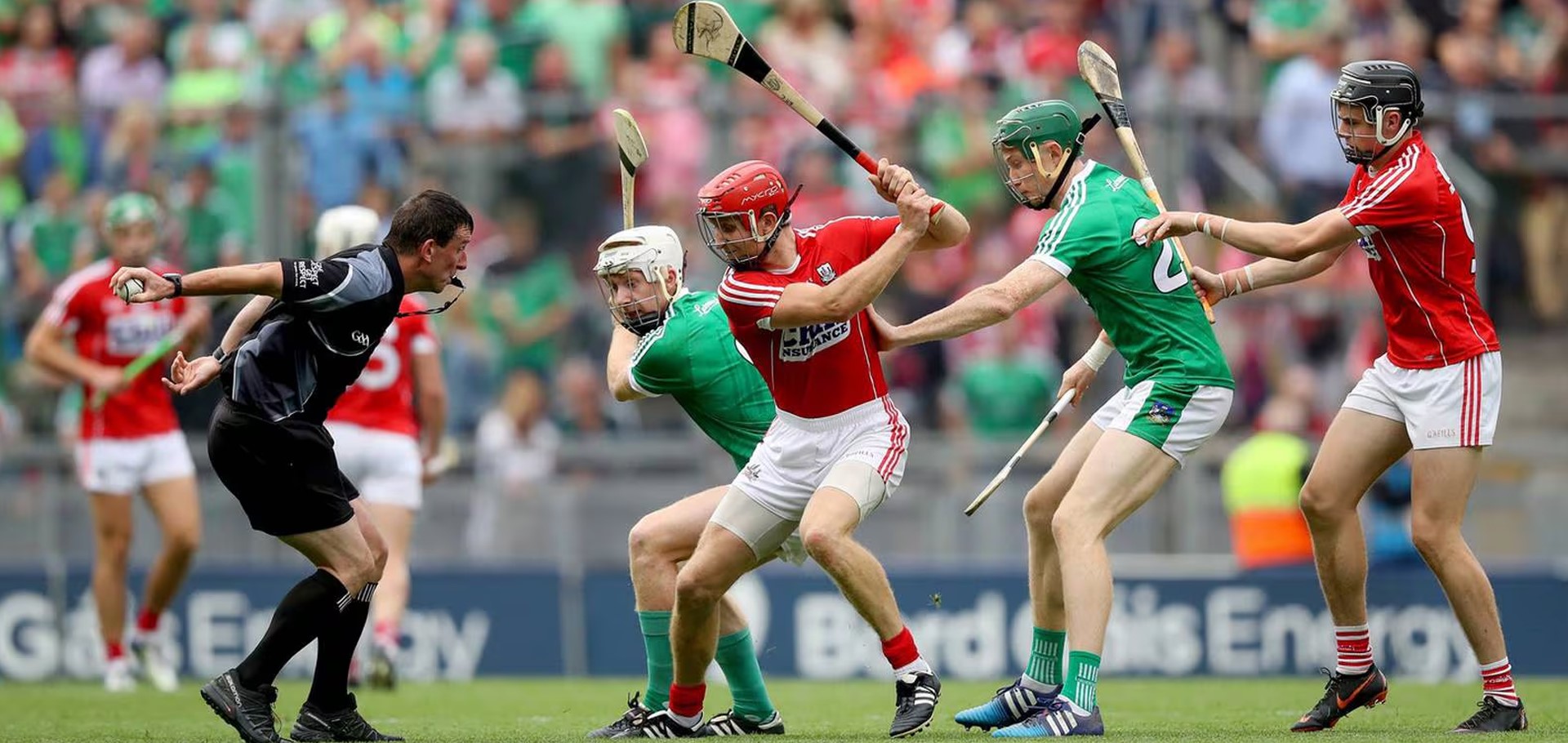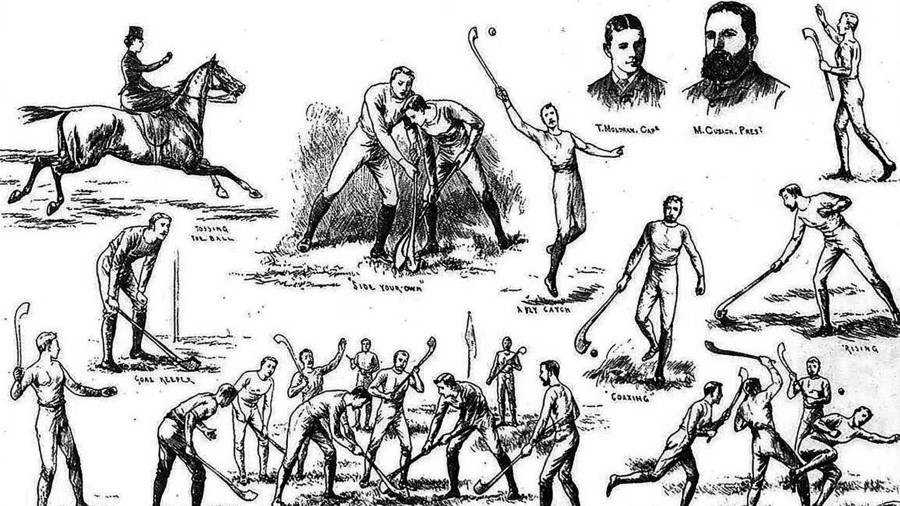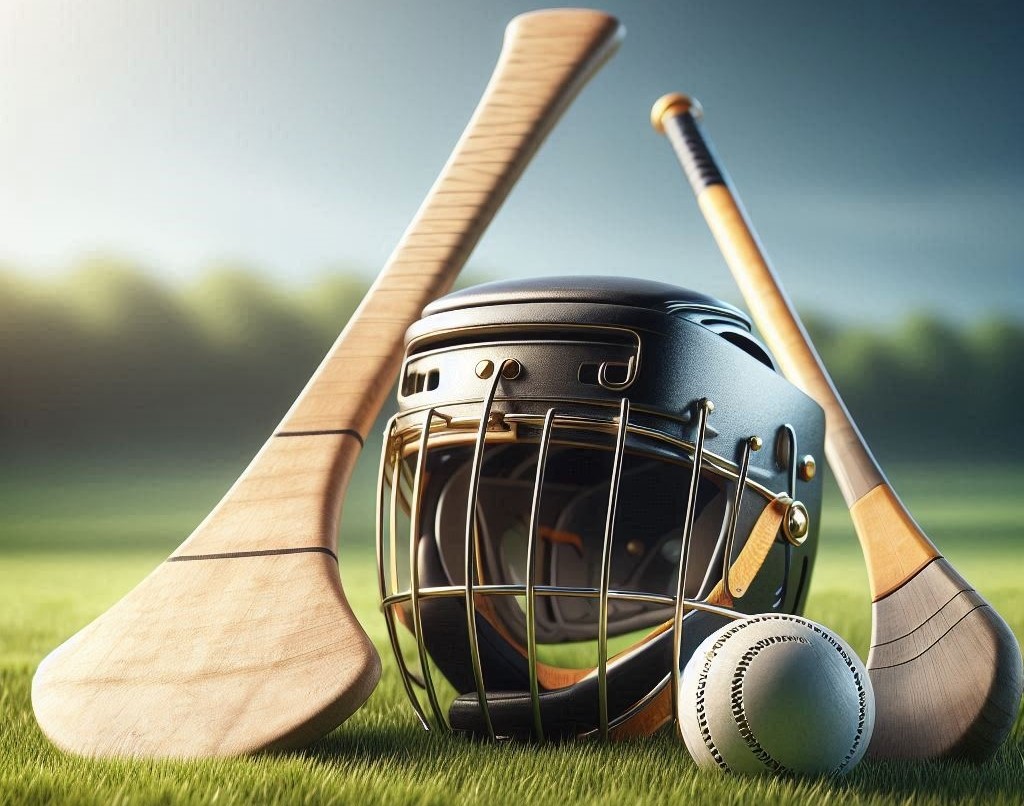Hurling: Unveiling a Fast-Paced Gaelic Game Steeped in History

Table of Contents
ToggleHurling: An Ancient Gaelic Game
Hurling, known for its fast pace and intense gameplay, is one of Ireland’s oldest and most cherished sports. This thrilling game, also referred to as camogie when played by women, involves skill, speed, and strategy. It is played with a small ball called a sliotar and a wooden stick called a hurley. Let’s delve into the rich history, explore the features of the sliotar and hurley, understand the rules of the game, and uncover some fascinating facts.
Hurling: A History Steeped in Tradition
This game boasts an incredibly long and rich history, stretching back millennia. Here’s a glimpse into its fascinating past:
Ancient Origins
Evidence suggests hurling pre-dates Christianity and may have even arrived in Ireland with the Celts. References to the sport appear in Irish mythology, with legendary figures like Cúchulainn known for their hurling prowess.
Early References
The earliest written records of this Gaelic game come from the Brehon Laws, a legal code dating back to the 5th century AD. These laws documented hurling matches between villages and outlined penalties for injuring players during the game.
The Golden Age
The 18th century is often referred to as the “Golden Age” of hurling. The sport enjoyed immense popularity throughout Ireland, with hurling matches drawing large crowds and fostering a strong sense of community spirit.

Standardization and the GAA
By the 19th century, hurling faced challenges due to variations in rules and equipment across different regions. In 1884, the Gaelic Athletic Association (GAA) was founded, playing a pivotal role in standardizing the rules and promoting the sport nationwide. The first All-Ireland Hurling Final under GAA regulations was held in 1891.
The Sliotar: Hurling Ball
The sliotar, sometimes called a “hurling ball,” is a hard, solid sphere slightly larger than a tennis ball. It consists of either a cork core or a polyurethane (PU) core, wound by a polyester thread, and covered with two pieces of leather stitched together. Here are the key features:
Diameter: 69mm to 72mm (excluding the rib)
Mass: 110g to 120g
Rib Height: 2mm to 2.8mm
Rib Width: 3.6mm to 5.4mm
Leather Cover: 1.8mm to 2.7mm thick, laminated with a coating no thicker than 0.15mm
Sliotars are manufactured according to GAA standards, ensuring they meet the strict regulations for size, mass, and composition. These balls are designed for match games and can feature custom logos or crests, making them ideal for clubs and teams.
The Hurley: Essential Equipment
The hurley, or camán in Irish, is a wooden stick used to strike the sliotar. Traditionally made from ash wood, modern hurleys can also incorporate synthetic materials for enhanced durability. Key characteristics of the hurley include:
Length: Varies based on the player’s height, typically between 24 to 36 inches
Weight: Lightweight yet sturdy for swift handling and powerful strikes
Design: A flat, curved blade for striking the sliotar and a rounded handle for a comfortable grip

Hurling Rules: A Mix of Speed and Skill
Hurling is a team sport played by 15 players on each side. The objective is to score by driving the sliotar between the opponent’s goalposts. Points are awarded as follows:
Over the bar: 1 point
Into the net: 3 points (a goal)
Players can:
- Carry the sliotar for a maximum of four steps.
- Dribble the sliotar on the ground with the hurley.
- Hand-pass the sliotar to teammates over short distances.
- Strike the sliotar with the hurley in the air or on the ground.
- The game is known for its physicality and requires a high level of skill, stamina, and agility. A good hurler can propel the sliotar over 150 km/h (93 mph) and cover significant distances on the field.
- Hurling is played on a rectangular grass field with H-shaped goals at each end.
- Game Duration is 70 minutes, divided into two halves
- Players can catch, strike, and carry the sliotar using their hurley, hand, or foot.
- Physical contact is allowed, but certain fouls, such as high tackles and tripping, result in free pucks or penalties
Fascinating Facts About Hurling
Oldest Field Game
Hurling is recognized as one of the oldest field games in the world, with origins tracing back over three millennia.
Speed and Skill
The sliotar can reach speeds of up to 150 km/h (93 mph), requiring exceptional skill and reflexes from players.
National Passion
Hurling is a national sport of Ireland, celebrated with major events like the All-Ireland Senior Hurling Championship.
Global Reach
While primarily an Irish sport, hurling has gained international popularity, with clubs and competitions in countries like the USA, Canada, and Australia.
Hurling is more than just a sport; it is a vibrant part of Irish heritage and culture. The game combines athleticism, skill, and tradition, making it a unique and exciting experience for players and spectators alike. Whether you’re watching a high-stakes championship match or playing a casual game, hurling is sure to captivate and inspire.
Experience the Thrill of Hurling: Looking to elevate your sporting experience? Discover the excitement of Hurling with a top-quality sliotar from ASI Soccer Company, Sialkot, Pakistan! We craft premium Hurling balls that meet official GAA regulations.
- Facebook
- Twitter
- Linkedin
- Whatsapp





